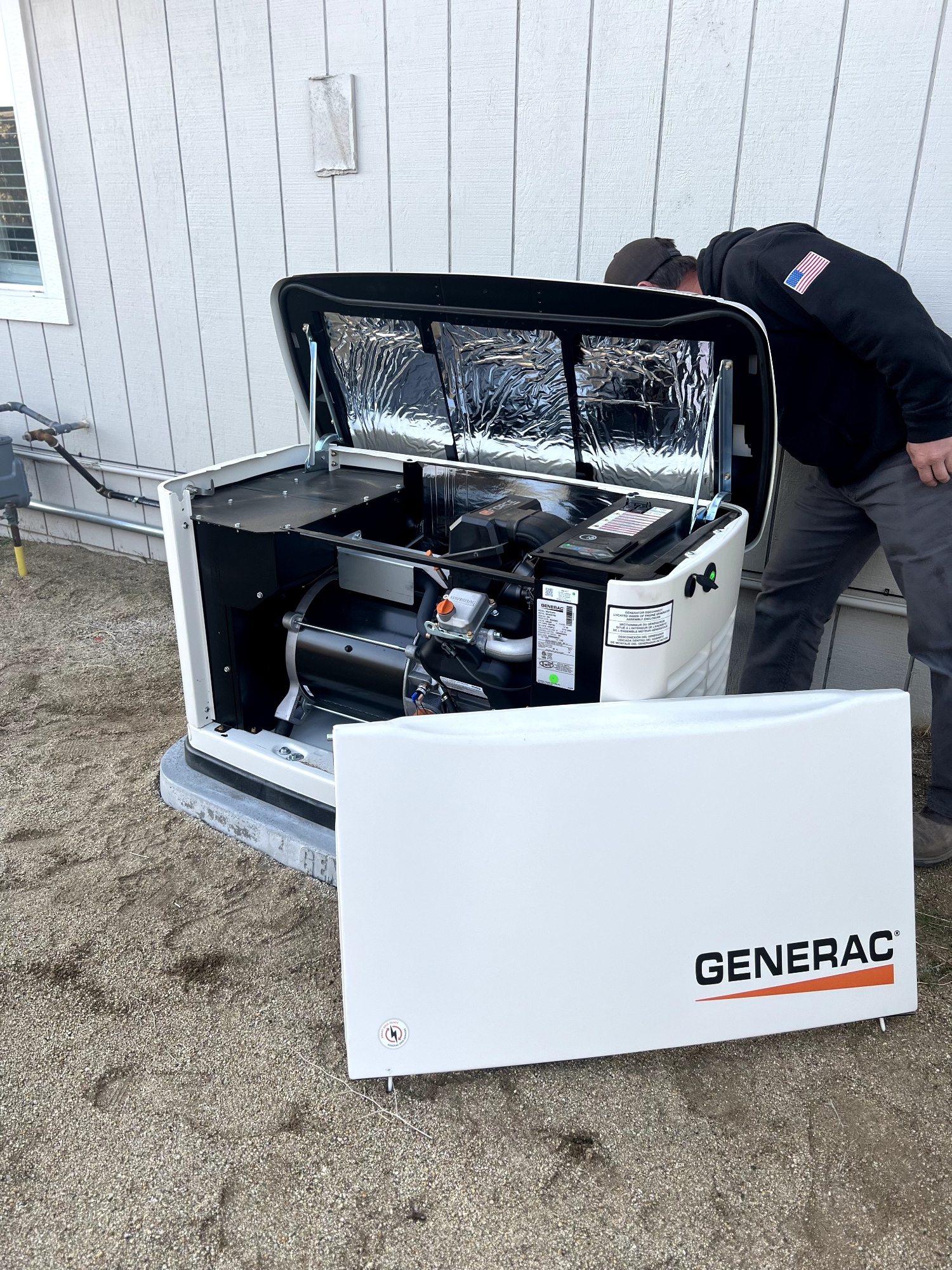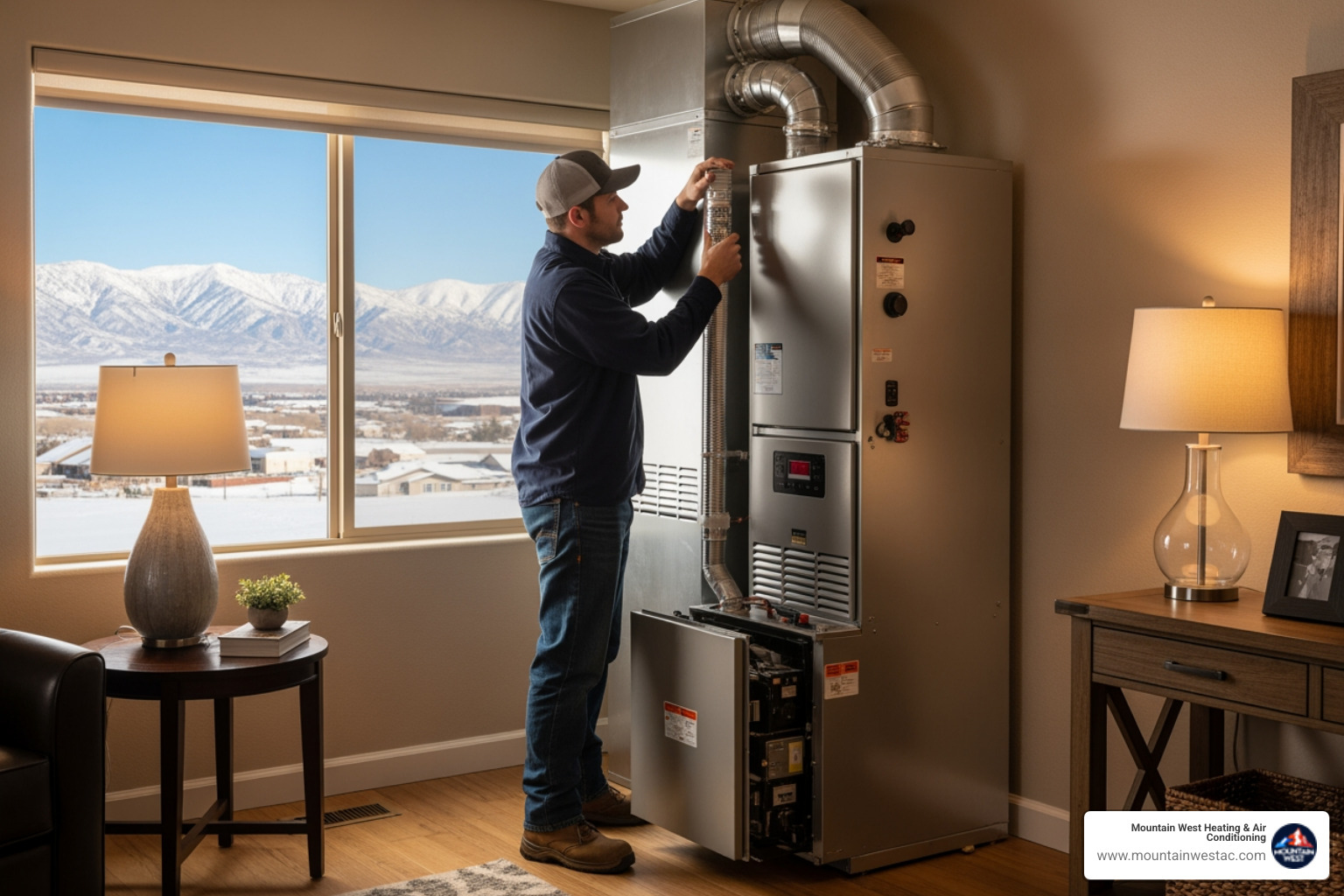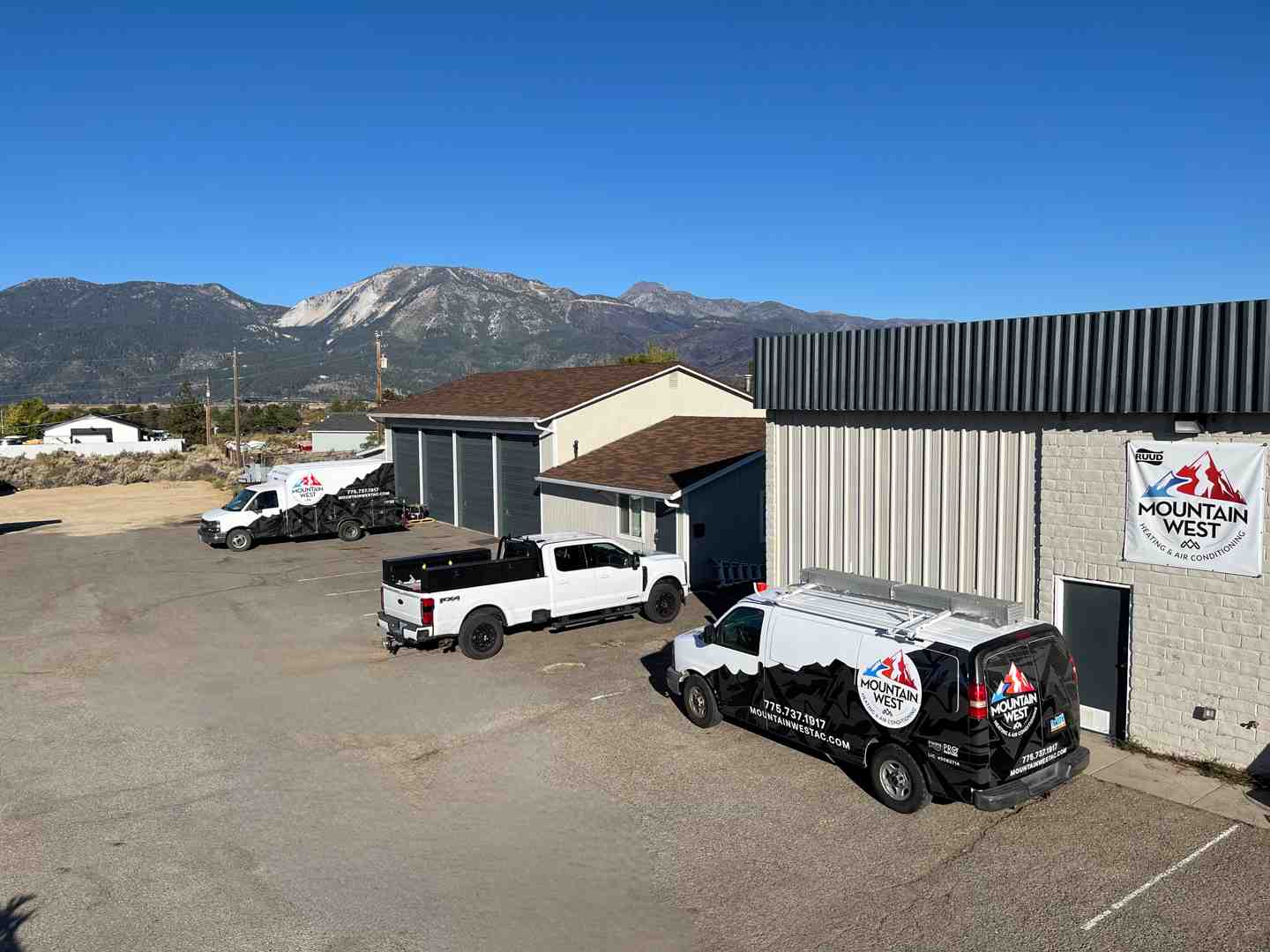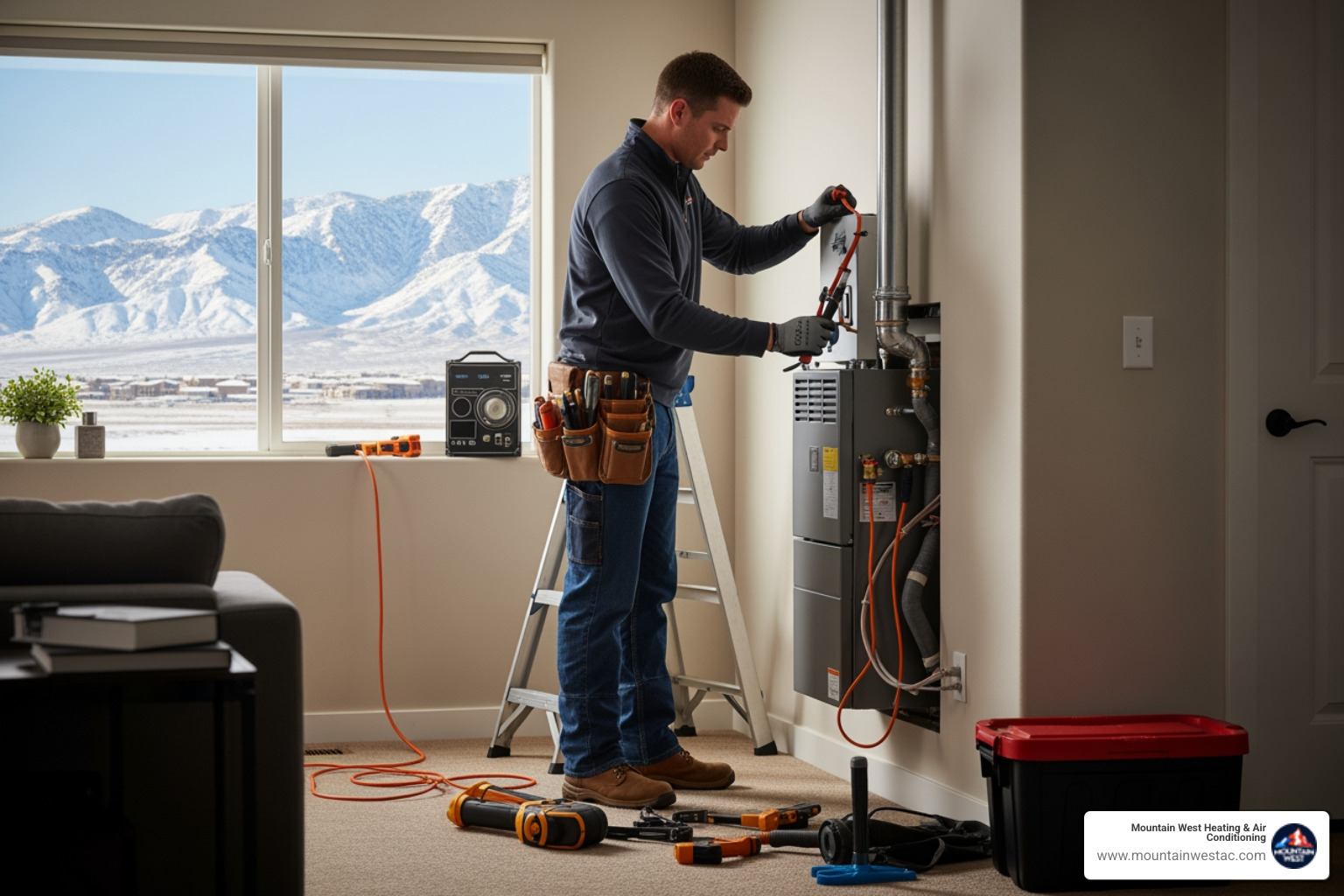Generator repairs can be expensive surprises for homeowners when their backup power systems break down unexpectedly. Understanding what drives these costs helps property owners make better decisions about maintaining and fixing their generators.
The average generator repair costs range from $50 to $600, depending on the generator type, with portable units typically costing $50-150 to fix and whole-house systems running $150-600 for common repairs. These price differences come from various factors that affect the complexity and time needed for each job.
Smart homeowners need to know when repair costs make sense compared to buying a new generator. In this article, you’ll learn how to navigate generator repair pricing and understand what drives the cost of fixing backup power systems.
Below, we’ll walk through each important aspect:
- Understanding generator repair pricing
- Factors that influence generator repair costs
- Repair vs. replacement: Which is more cost-effective?
- How to get an accurate generator repair estimate
Keep reading! Learning about pricing factors, getting accurate estimates, and understanding the repair process can save money and prevent costly mistakes when generators fail.
Understanding generator repair pricing
Generator repair costs depend on several key factors including the type of repair needed, labor rates in your area, and whether you need replacement parts. Most homeowners can expect to pay between $60 and $600 for typical generator repairs.
Average generator repair costs homeowners can expect
The typical generator repair cost ranges from $60 to $600 depending on the problem's complexity. Minor issues like filter replacements or basic tune-ups fall on the lower end of this range.
More serious problems can push costs higher. Engine repairs or electrical system fixes often require more time and expertise.
Professional generator repair services charge different rates based on the generator's size and type. Portable generators usually cost less to fix than whole-house standby units.
Service call fees typically range from $75 to $150. This covers the technician's visit and initial diagnosis. Some companies apply this fee toward the total repair cost.
Emergency repairs during weekends or holidays often include additional charges. These premium rates can add 25% to 50% to standard pricing.
Common repairs and their typical price ranges
Different generator problems have distinct cost ranges based on their complexity and required parts.
Battery replacement typically costs $50 to $200. This includes both the battery and installation labor.
Oil changes and filter replacements range from $75 to $150. These routine maintenance tasks prevent bigger problems.
Fuel system repairs can cost $200 to $500. This includes cleaning fuel lines, replacing fuel pumps, or fixing carburetor issues.
Control panel problems often cost $300 to $600 to fix. These repairs require specialized knowledge of electrical systems.
Engine rebuilds represent the most expensive repairs, ranging from $800 to $2,000. Many homeowners choose replacement over major engine work at these price points.
How labor, parts, and location affect overall cost
Labor rates vary significantly by geographic location. Urban areas typically charge $100 to $150 per hour, while rural locations may charge $75 to $100.
Parts availability directly impacts pricing. Common components cost less than specialized parts that require special ordering.
Generator brand affects part costs. Popular brands like Generac often have more affordable replacement parts due to wider availability.
Travel distance can add fees to your bill. Technicians may charge mileage for service calls beyond their standard coverage area.
Professional generator repair companies often provide better warranty coverage than independent contractors. This added protection can justify higher upfront costs.
Seasonal demand influences pricing. Spring and fall maintenance periods may offer lower rates than emergency summer or winter repairs.
Factors that influence generator repair costs
Generator repair costs depend on several key factors that can make the difference between a $150 simple fix and a $2,000 major repair. The size and brand of your generator, your maintenance habits, and whether you need emergency service all play major roles in determining final costs.
The role of generator size and brand in pricing
Larger generators cost more to repair than smaller units. A whole-house standby generator requires more expensive parts and longer labor time compared to a portable generator.
Generator size affects costs in these ways:
- Small portable generators: $150 to $400 for most repairs
- Medium standby generators: $250 to $600 for typical repairs
- Large commercial units: $500 to $2,000 for complex repairs
Brand also matters for repair pricing. Popular brands like Generac or Kohler have readily available parts. Less common brands may require special-order parts that cost more and take longer to get.
OEM parts from the original manufacturer cost more than aftermarket parts. However, OEM parts often provide better performance and longer life. The choice between OEM and aftermarket parts can change repair costs by 20% to 40%.
Why regular maintenance helps avoid costly breakdowns
Standby generator maintenance prevents small problems from becoming expensive repairs. Annual maintenance costs $150 to $300 per year. This small investment can save hundreds or thousands in major repair bills.
Regular maintenance catches these issues early:
- Oil changes prevent engine damage
- Air filter replacement stops dirt from entering the engine
- Battery testing prevents starting failures
- Fuel system cleaning prevents clogged injectors
A generator that gets regular maintenance typically needs fewer repairs. When repairs are needed, they tend to be less expensive because problems get caught before they cause major damage.
Neglected generators often need engine rebuilds or replacements. These major repairs can cost $500 to $2,000 or more.
According to the National Renewable Energy Laboratory (NREL), preventive service and upkeep for standby backup generators represent a meaningful share of their total lifecycle cost, reinforcing the value of regular maintenance to avoid high repair bills .
How emergency repairs differ from scheduled service rates
Emergency generator repairs cost significantly more than scheduled maintenance visits. Most repair companies charge premium rates for after-hours, weekend, and holiday service calls.
Emergency service typically adds these extra costs:
- Service call fees: $100 to $200 extra
- Labor rates: 50% to 100% higher than normal rates
- Rush part orders: 25% to 50% markup on parts
Scheduled repairs during normal business hours cost less. Technicians have more time to diagnose problems properly. They can order parts in advance and plan the most efficient repair approach.
Emergency repairs also happen when generators fail during power outages. This creates time pressure that can lead to temporary fixes instead of permanent solutions. These quick fixes may need follow-up repairs later.
Repair vs. replacement: Which is more cost-effective?
The decision between repairing or replacing a generator depends on specific factors like age, repair costs, and frequency of breakdowns. Most experts agree that if repair costs exceed 50% of a new generator's price, replacement becomes the better financial choice.
When repairing your generator makes financial sense
Generator repair makes the most financial sense when the unit is relatively new and well-maintained. Generators typically last 10 to 20 years with proper care.
Age is the primary factor. If your generator is less than 10 years old, repairs are usually worth the investment. Newer units have readily available parts and updated components.
Simple problems cost less to fix. Minor issues like:
- Clogged air filters
- Spark plug replacement
- Oil changes
- Battery problems
These repairs typically cost between $100 to $500. The low cost makes repair the obvious choice.
Single-issue breakdowns favor repair. When only one component fails, fixing it costs much less than buying a new generator. Parts and labor for single repairs rarely exceed $1,000.
Good maintenance history matters. Generators with regular service records perform better after repairs. Well-maintained units are less likely to have multiple problems at once.
Signs it may be time for a full replacement
Several clear indicators point toward replacement being more cost-effective than continued repairs.
The 50% rule applies consistently. When repair estimates exceed 50% of a new generator's cost, replacement wins financially. A new whole house generator costs around $8,000 installed.
Age becomes a major factor after 15 years. Older generators need more frequent repairs. Parts become harder to find and more expensive.
Multiple system failures signal replacement time. When several components fail together, repair costs add up quickly. These situations often indicate widespread wear.
Discontinued parts create problems. When manufacturers stop supporting older models, parts become expensive and scarce. Repair times increase significantly.
According to the Pacific Northwest National Laboratory (PNNL), neglecting proper operation and maintenance of standby generators increases the risk of early failure and makes the unit less reliable during critical outages.
Efficiency drops in older units. Reduced performance means higher fuel costs over time. New generators run more efficiently and save money long-term.
Comparing short-term fixes to long-term savings
Short-term repairs might seem cheaper initially, but long-term costs often favor replacement for aging generators.
Frequent breakdowns increase total costs. Multiple repair bills throughout a year can exceed replacement costs. Each service call adds labor charges and downtime expenses.
Downtime costs money beyond repair bills. Business owners face lost revenue during outages. Residential users may lose food or face safety issues.
New generators offer warranty protection. Most new units include 2 to 5-year warranties. This coverage eliminates repair costs during the warranty period.
Energy efficiency improvements save money. Newer generators use 10-20% less fuel than older models. These savings add up over several years of operation.
Modern safety features reduce risks. Updated generators include better automatic shutoffs and monitoring systems. These features prevent costly damage from malfunctions.
How to get an accurate generator repair estimate
Getting a clear backup power repair estimate requires asking the right questions and understanding your warranty options. Transparent pricing helps homeowners budget properly and avoid surprise costs after repairs begin.
What to ask your technician before approving repairs
Homeowners should request a detailed breakdown of all repair costs before work begins. The estimate should include parts, labor, and any additional fees.
Key questions to ask:
- What is the exact problem with the generator?
- How much will parts cost versus labor?
- Are there any diagnostic fees?
- Will you need permits for the repair work?
Technicians should explain which parts need replacement and why. They should also provide a timeline for completing the work.
Ask about potential additional problems they might find during repairs. Some issues only become visible once the generator is opened up.
Request references from recent customers who had similar repairs. This helps verify the technician's experience with your generator type.
Understanding warranty coverage and service agreements
Generator warranties often cover major components but exclude routine maintenance items. Homeowners need to check what their specific warranty includes before paying for repairs.
Common warranty exclusions:
- Oil and filter changes
- Spark plug replacement
- Normal wear parts like belts
- Damage from poor maintenance
Service agreements may reduce home generator service rates for regular customers. These contracts often include priority scheduling and discounted parts.
Read warranty terms carefully to understand labor coverage. Some warranties cover parts but not installation costs.
Keep all maintenance records to protect warranty coverage. Missing documentation can void warranty claims for covered repairs.
Why Mountain West AC provides transparent, upfront pricing
Mountain West AC provides written estimates before starting any generator repair work. Their pricing includes all costs so customers know exactly what they will pay.
The company breaks down estimates by parts and labor costs. This helps customers understand where their money goes for each repair.
Their pricing approach includes:
- No hidden fees - All costs listed upfront
- Fixed labor rates - No surprises during repair work
- Parts pricing - Actual cost shown before ordering
- Written estimates - Everything documented in writing
They explain why each repair is necessary and offer options when multiple solutions exist. Customers can choose between basic fixes and premium upgrades based on their budget.
Mountain West AC honors their written estimates even if repairs take longer than expected. This protects customers from inflated bills due to unexpected complications.
Financing options for generator repairs
Stretch larger repairs over predictable monthly payments so you don’t delay critical backup power. Mountain West AC partners with Synchrony to offer financing on qualifying services, parts, and standby generator maintenance, subject to credit approval.
- What can be financed: diagnostic fees, parts and labor, control board replacements, battery/fuel system repairs, transfer switch work, and comprehensive maintenance plans.
- Typical benefits: fixed monthly payments, clear terms, and no prepayment penalties (program-dependent). Promotional APRs may be available on select terms.
- Who it helps: homeowners facing higher generator repair costs or planning upgrades that improve reliability and safety.
- How to apply (fast):
- https://www.mountainwestac.com/financing
- Submit the secure application (soft or hard inquiry depends on lender program).
- Review approved terms and e-sign—most decisions are quick.
- What you’ll need: a government-issued ID, estimated project amount, and basic income/employment details.
- Smart budgeting tip: pair financing with a maintenance plan to smooth expenses and reduce unplanned downtime.
Note: Financing is provided by Synchrony; terms, APRs, and eligibility vary by program and applicant profile.
Build your generator repair estimate online
Get a transparent backup power repair estimate before you book. Our estimator builder form turns the information you provide into an initial price range tailored to your unit and issue, so you can compare generator repair pricing with confidence.
- What you’ll input (takes a few minutes): brand/model, size (kW), fuel type (natural gas/propane/diesel), age, error codes or symptoms (won’t start, surging, won’t transfer), recent maintenance, and photos of the install if available.
- What you’ll receive: a ballpark home generator service rate range for parts and labor, plus recommended next steps (e.g., additional testing, parts lead times).
- Accuracy checklist: estimates are most precise when you include error codes, photos of the control panel, and a brief timeline of the failure.
- Next step after submitting: you’ll see scheduling options for an on-site diagnostic; your tech will confirm the scope and provide a written, itemized quote before work begins.
- Privacy and transparency: your details are used only to prepare your estimate and service visit; we’ll clearly call out any variables that could change the final price (e.g., hidden electrical faults, corroded wiring, or access constraints).
Conclusion
Generator repair costs depend on many factors. The type of damage, generator size, and local labor rates all affect pricing.
Regular maintenance helps prevent expensive repairs. Annual service costs $200-$600 but saves money long-term.
Portable generators cost less to fix than whole-house units. Commercial generators have higher repair bills due to their size and complexity.
Getting multiple quotes helps homeowners find fair pricing. Licensed technicians provide better service and warranties.
Some repairs cost more than replacement. Generators over 10 years old with major problems might need replacing instead of fixing.
Emergency repairs during power outages cost more. Scheduling service during normal hours saves money.
Parts often cost $50-$400 depending on the component. Labor rates range from $75-$150 per hour in most areas.
Simple problems like spark plug replacement cost under $100. Complex electrical issues can reach $1,500 or more.
Planning for repair costs helps homeowners budget properly. Setting aside $300-$500 yearly covers most maintenance and small repairs.
Get a clear, upfront estimate or schedule your generator repair with Mountain West AC’s licensed technicians today.









